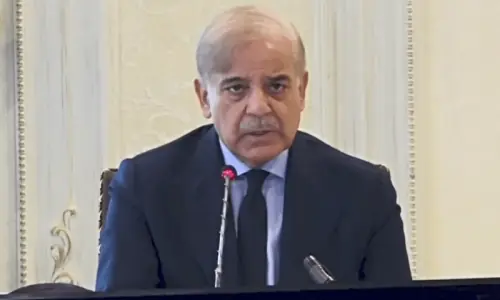ISLAMABAD: Admitting that certain institutions in the country lacked transparency and accountability, former information minister and Pakistan Muslim League-Nawaz Senator Pervaiz Rashid said there were “some institutions” in the country which placed hurdles in access to information.
While speaking at a ceremony organised by the Coalition on the Right to Information at the National Press Club here on Thursday, Mr Rashid regretted that people were not granted access to information on the pretext of “national security”.
The PML-N senator said that several parliamentarians had asked questions regarding the judiciary, but had not received any reply. He said former prime minister Zulfiqar Ali Bhutto had vowed that martial law would never return to the country, however, Pakistan had continued to face long periods of martial law and the abrogation of the Constitution by dictators. He said the court had even allowed a military dictator to amend the Constitution.
The former minister said everyone had the right to know who created non-state organisations in the country and how much public money had been spent on them. He was of the view that the new Right to Information Bill would help promote a culture of freedom of information.
Parliament not even aware of law under which ISI has been functioning: Babar
Mr Rashid added that mere legislation would not serve the purpose as there was a need for enforcement of law in letter and spirit.
Pakistan Peoples Party (PPP) Senator Farhatullah Babar, who had played a key role in the preparation and finalisation of the draft of the Right to Information Bill, squarely blamed security agencies for placing hurdles in the passage of the bill. He regretted that most of the information was not provided because it was termed “secret and sensitive.” He said that they had even written letters to the sensitive agencies to inquire about their concerns, but in return, they were advised not to proceed further with the bill as it dealt with “sensitive matters”.
Mr Babar said there were certain issues which could not and should not be asked from national security institutions, but questions regarding corruption by some officials of these institutions could be asked. He said parliament was not even aware of the law under which the Inter-Service Intelligence (ISI) had been functioning in the country.
Similarly, he added, parliament had not been provided a reply to a question regarding an inquiry into the 1999 Kargil debacle.
Mr Babar said it must be binding on every institution, including parliament and the judiciary, to provide information to the public.
Published in Dawn, September 29th, 2017





























